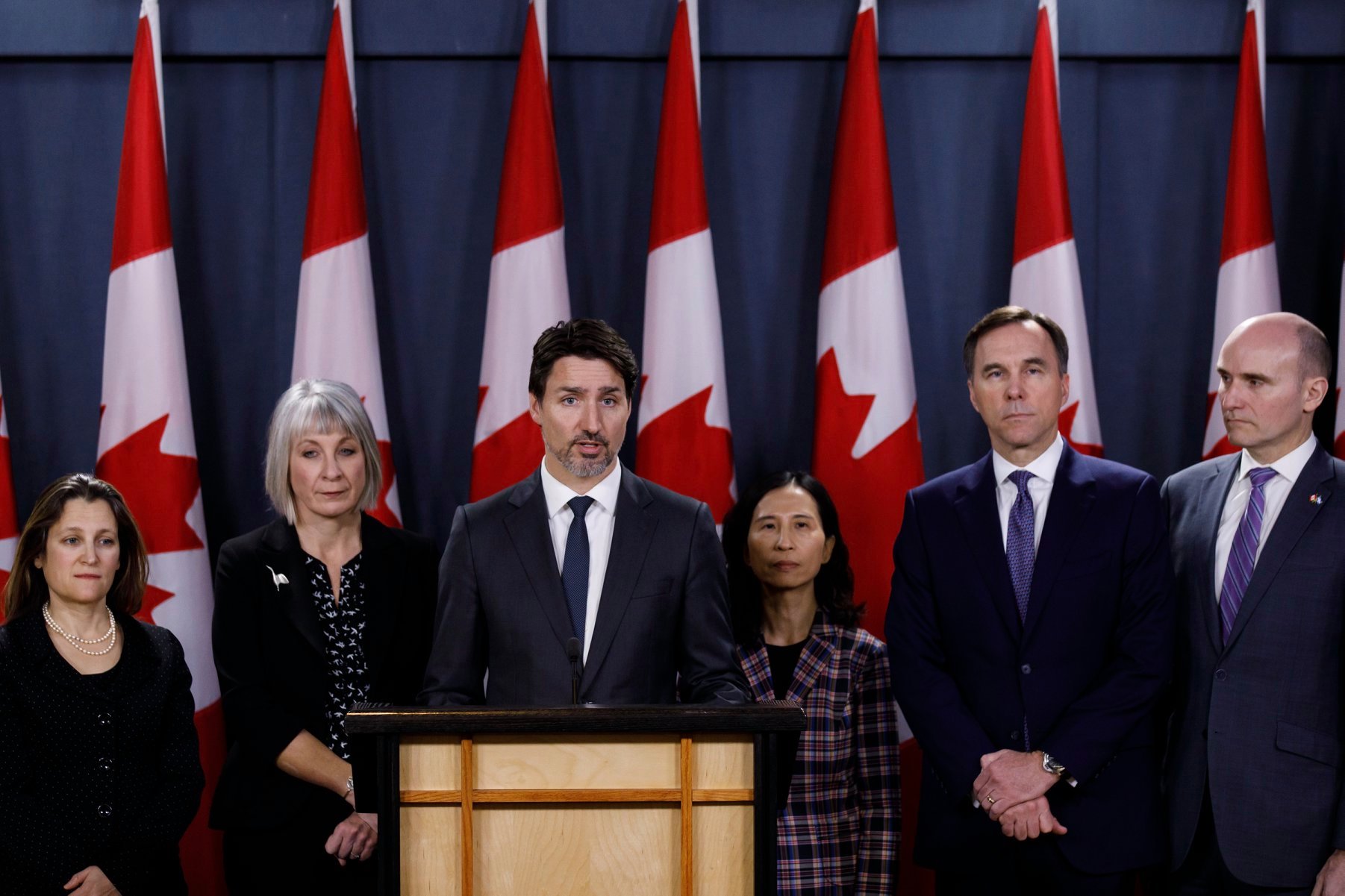
OTTAWA — The United States appears to have backed off on its plan to send soldiers to the Canada-U.S. border, says Prime Minister Justin Trudeau.
The U.S. Department of Homeland Security had been floating the idea to help U.S. Customs and Border Protection officials keep migrants from crossing the border between official entry points, ostensibly to limit the possible spread of COVID-19.
But Trudeau’s equivocal language Wednesday suggests the idea might not be off the table.
“The ongoing conversations we have with the American administration continue on a broad range of subjects, and we have heard that that is not something they are continuing to pursue,” the prime minister said.
“But we will, of course, continue to engage with the American administration as new situations come up and as things develop.”
President Donald Trump has suggested the plan was a measure of “equal justice” linked to a plan to send additional U.S. soldiers to its border with Mexico, where the administration has long been focused on mitigating the flow of illegal immigration.
Gen. Terrence O’Shaughnessy, the head of U.S. Northern Command, confirmed Wednesday that the military is sending 540 more troops to the southern border “very soon” to assist the U.S. Border Patrol in intercepting and preventing migrants trying to enter the country from spreading the virus.
The U.S. has about 5,000 soldiers backstopping authorities at the southern border, which Trump famously made a cornerstone of his 2016 election strategy by promising to build a wall and to make Mexico pay for it.
O’Shaughnessy described the deployment as part of the “whole-of-America” effort against the pandemic, which as of Wednesday had sickened more than 210,000 people and killed nearly 5,000 in the U.S. In Canada, the total number of cases was approaching 10,000, with 114 deaths.
“As the president has said, we are at war with COVID-19,” O’Shaughnessy told a briefing at the Pentagon. “To win this war, which we absolutely will, we’re approaching it as a large-scale military campaign.”
In Canada, the prospect of U.S. soldiers along the world’s longest unmilitarized border had prompted strong opposition from the Prime Minister’s Office and diplomatically pointed language from Deputy Prime Minister Chrystia Freeland.
Freeland had said such a move would be damaging to Canada’s relationship with the United States.
“Canada is strongly opposed to this U.S. proposal and we have made that opposition very, very clear to our American counterparts,”she said last week. “We really don’t think this is the right way to treat a trusted friend and military ally.”
Trump administration officials never publicly confirmed they were entertaining the idea — nor have they ever ruled it out.
The administration is “considering every option,” they said at the time. “The risk of further spread of the virus is too high not to respond in an appropriate and measured way.”